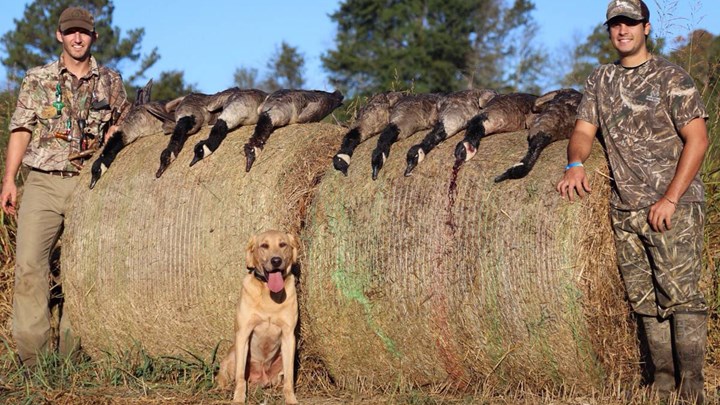
by Chris Chaffin - Friday, November 9, 2018

All too often we hear that pathways to outdoor participation are being closed to youth and young adults. However, the University of Montevallo (UM) in central Alabama has created a college degree program that does a 180 on that trend, enabling students to build a custom curriculum that can “convert [their] outdoors activities into a career.”
Named the President's Outdoor Scholars Program (POSP), it allows students to tailor their studies to a degree that can lead to an outdoor industry career. It is generally conducted through the school’s Interdisciplinary Studies Program and includes courses such as business management, marketing, retail and video production to outdoor resource management courses, among others.
When he envisioned POSP, UM President Dr. John Stewart III, an avid outdoorsman, remembered how he was separated from his outdoor activities while in college. He then asked himself if colleges should encourage students to see if their “passions could be matched up with a career.”
Stewart approached William Crawford, already working on the campus, about the idea of merging a love of the outdoors with a formal education. Crawford, a respected breeder and trainer of retrievers, said, “I think they’d love it,” and embraced the challenge by becoming the POSP coordinator.
Initially, POSP was mostly extracurricular activities to keep the students connected to the outdoors. But the students wanted more. They wanted a career track so the program started working on an approach that tied more directly to academics. “So far,” Crawford says, “we’re really happy with the progress.”
This spring UM launched a program in which students can create their own majors. Depending on an individual student’s interests, he or she can combine components tied directly to other areas on campus—like the College of Business or Family and Consumer Sciences, Environmental Studies or Biology.
Future outdoor businessmen and women have many unique opportunities as they pursue their degrees. To date, they’ve had lunch and tours with Toxey Haas, president of Mossy Oak, and visited with Jackie Bushman, hunting TV host and founder of Buckmasters. And, they have fished for the famous redfish in Venice, La., pursued blue marlin in the Bahamas, bowfished in Alabama and hunted quail, waterfowl and whitetail deer. Hunting turkey in Colorado is next on the list. President Stewart clarified that “no taxpayer money is used for the trips, which are paid for with private donations.”
Crawford explains that of course the goal is for students to continue to enjoy the things they’ve always done, but he and Dr. Stewart also want to introduce them to new adventures. “I tell the students if they can think of it, we’ll go and do it,” he said. “If we can expose them to lots and lots of different aspects of the sporting life, then that’s a good curriculum.”
Citing just one example of the program’s recent influence, Crawford reported on one student who went on his first waterfowl hunt. It sparked a new outdoor interest as the novice waterfowler proceeded to buy waterfowl hunting gear and get a hunting lease and a retriever to train. Crawford also pointed out that not only is creating a passionate new hunter important but that the recruitment likewise pumps money back into the economy and the outdoor industry. And, yes, some of the extracurricular activities now can count toward credit for a student to graduate.
UM’s Outdoor Scholar Program is making a difference in perpetuating mainstream America’s hunting and outdoor heritage. Program scholarships are available through the UM Foundation to students who have distinguished accomplishment in outdoor sports and who have demonstrated a personal commitment to conservation.
Right now I only have one question: Where was this wonderful program when I was in college?
Editor's Note: NRA Hunters' Leadership Forum would like to thank the University of Montevallo for the lead image of President’s Outdoor Scholars Program Coordinator William Crawford, left, and student Grant Deavers who bagged a limit of Canada geese with Dash the retriever on Deavers’ first waterfowl hunt.
E-mail your comments/questions about this site to:
[email protected]
Proudly supported by The NRA Foundation and Friends of NRA fundraising.
